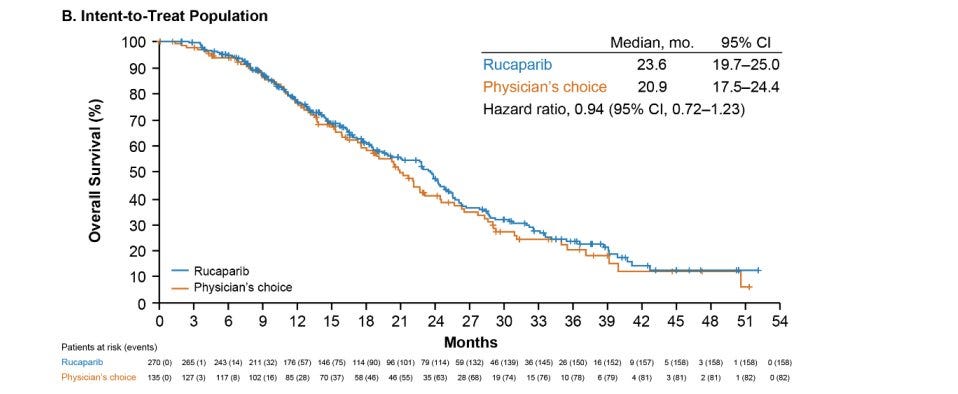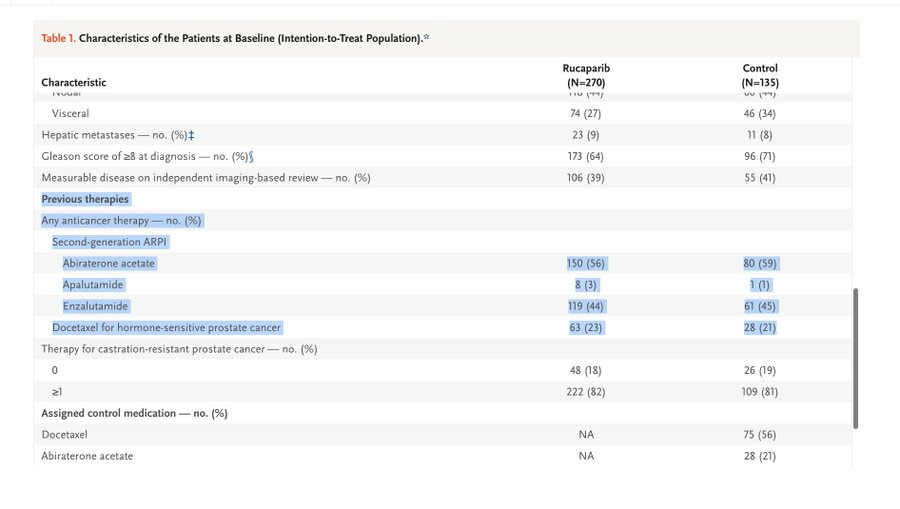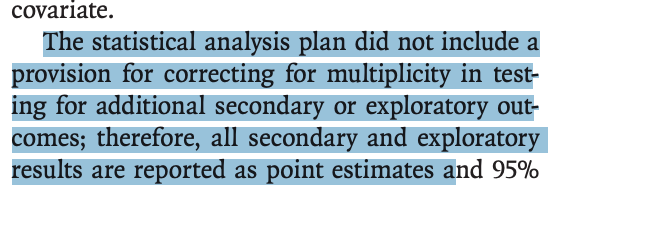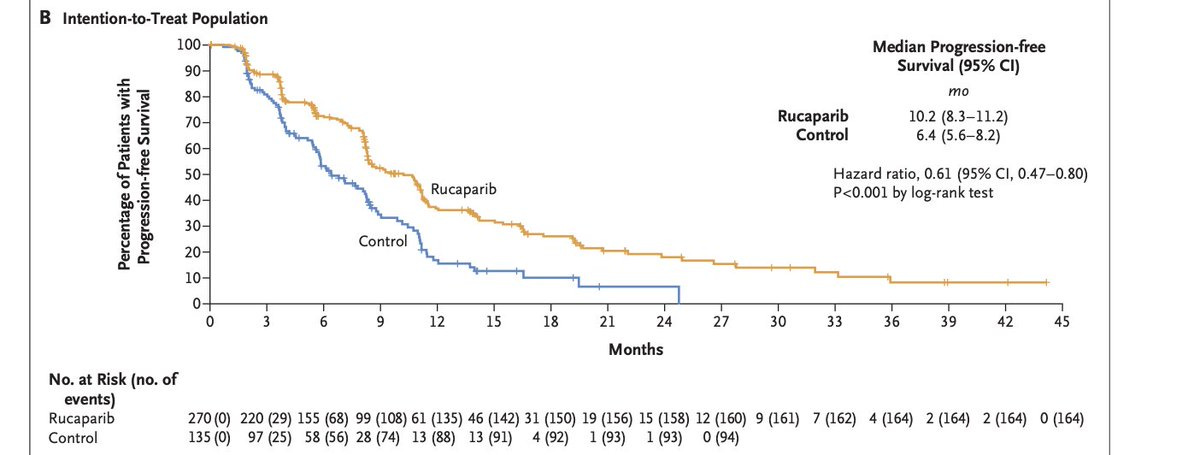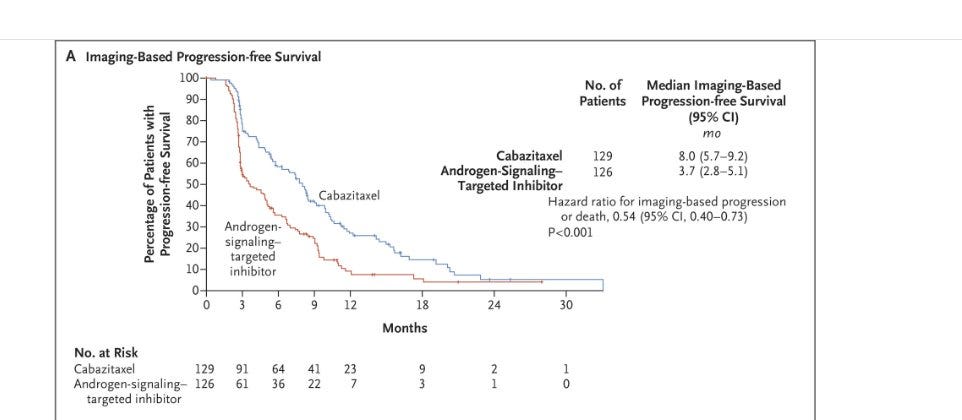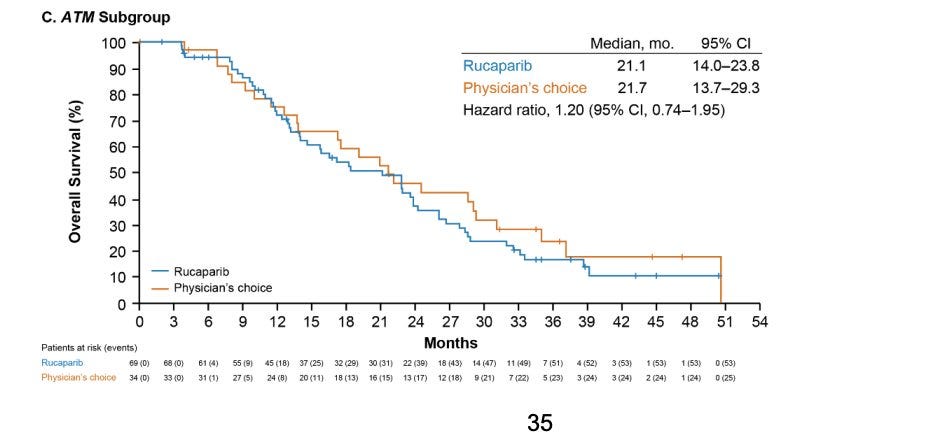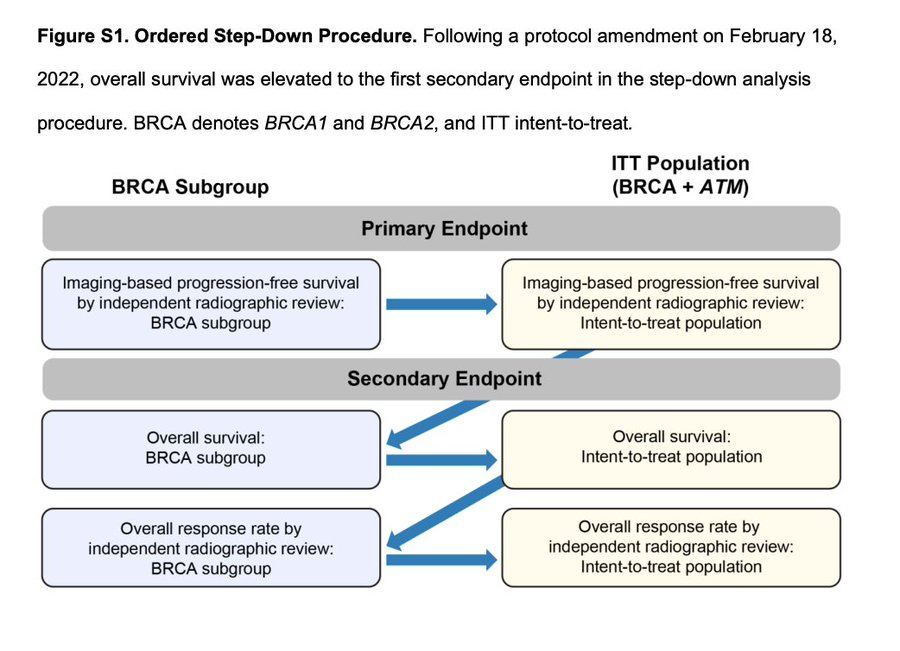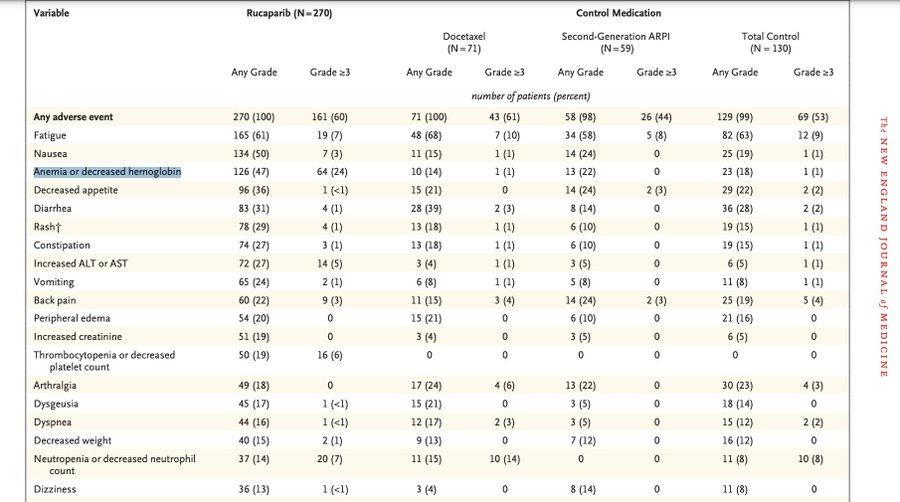Rucaparib vs. Investigator choice - Problems with TRITON-3
Clovis pharmaceuticals latest gaffe
Some of us remember the good old days of rocilitinib. Clovis oncology famously neglected to perform confirmatory scans. Whoops! Dinghra’s editorial is still legendary on this topic. Sadly, Clovis has filed for bankruptcy.
But that didn’t stop them! The latest Clovis oncology trial came out in NEJM during #GU23, GU ASCO, and I am going to provide a quick analysis of TRITON-3
But first: what the hell is this newsletter?
If you like Plenary Session— and PS I know you do because to get this, you were on our mailing list— this is the Substack for you. This will be an in-depth analysis of drug development. I will be writing this as I would for an educated drug development audience. I imagine you are an oncologist, or work in the sector, and I can assume you know a fair bit about trials and drug development. If you are a cancer patient or advocate, this Substack can also be for you, but read the book Malignant first for some vocabulary, or keep a copy at hand for the glossary.
Many of our posts will be free to all— and focus on trials that have implications for clinical practice or registration. I will also discuss publications from my lab here: vkprasadlab.com, which are often too technical for both my Substack and Sensible Medicine. Several times a year (especially around the 4 major conferences ASCO/ASH/ESMO/EHA), I will take a deep dive into early phase drug development, and this will only be available to subscribers. This content will primarily interest pharmaceutical insiders, venture capital firms and people embroiled with the day to day of drug development. If you aren’t in these categories, don’t feel bad if you don’t subscribe. But if you are, you will want to, and will support our mission, which is to grow this to be the best analysis out there. More to come on this topic.
Now back to TRITON-3, and rucaparib, the PARP inhibitor
Point #1. Overall survival is entirely null. Curves superimposable. This is disappointing. We have to do better than this. If patients don’t live longer, what is the point?
Point #2. The control arm is called “physician’s choice” but it is not an unfettered choice. It is restricted to abi or enza or taxotere. Timothee Olivier famously showed that most physician choice these days is a restricted choice. This is clearly a game to exclude the most appropriate drugs— as cabazitaxel- would be for several pts here.
Point #3. You had to have gotten abi or enza to enroll, and 1/5+ also got taxotere!
It is no secret that ARNI works poorly post progression on ARNI. Enza to abi is the worst, but even abi to enza is not terrific. If someone got taxotere for castrate sensitive disease, how much time elapsed before giving docetaxel again? If just a few months, that is nuts.
Point #4. Primary endpoint is rPFS. Give me a break. When Ian Tannock compared docetaxel to mitoxantrone in 2004, the primary endpoint was OS. For decades OS was the sole primary endpoint of prostate cancer trials. rPFS is not even needed when OS is readily reached. As you see from the Supplement— the median has been reached already. OS should be the primary endpoint. Prostate cancer is weird— evidence gets weaker over time.
Point #5. What were they thinking? You have to preserve alpha for secondary endpoints with a multiplicity plan. Wtf is this. Obvs. FDA doesn’t give a shit about OS, and they must have told the company. That is basically what this tells us.
Point #6 Half got ARNI again— disgraceful, but of the 56% getting docetaxel, I am curious how many got it before, and how many should have gotten cabazi instead, and I intend to find out and report back— in these pages.
Point #7. Not curative, and compare the control median PFS to CARD
This was CARD btw— older trial, sicker people. PFS on control arm in TRITON should not be less than Cabazitaxel!
Point #8 Everyone knows ATM doesn’t benefit. I suspected that even with PROFOUND.
Point #9 This protocol amendment happened after accrual halted. Sad!
Point #10
PARP will devastate marrows. It is not benign just because it is “new” and “targeted”
I bet MDS and AML will emerge with large datasets.
Point #11 Write your own goddamn papers
That’s it for now; I am not a big fan of this study. Someone alerted me to issues of X-over and I will investigate, but it is not gospel that X-over always hides OS gain, it can even obscure OS loss. I will return to discuss that point more in these pages.
Cheers! Now tell your friends to subscribe.
Vinay Prasad MD MPH
Developdrugs.substack.com



